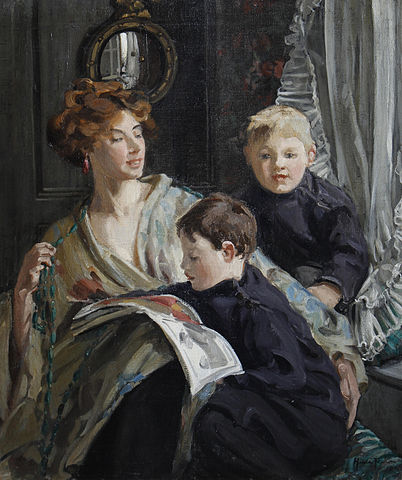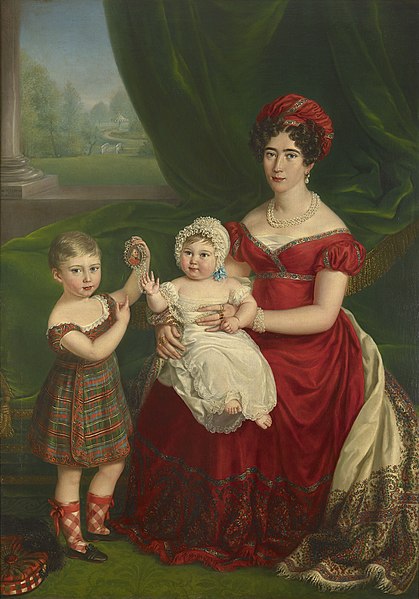
The Thammasat University Library has newly acquired a book that should be useful for students interested in economics, sociology, gender studies, political science, and related subjects.
Career and Family: Women’s Century-Long Journey toward Equity is by Claudia Dale Goldin, an American economic historian and labor economist who teaches at Harvard University in Cambridge, Massachusetts, the United States of America. In 2023, she was awarded the Nobel Prize in Economic Sciences for having advanced our understanding of women’s labor market outcomes.
The TU Library collection includes several books about different aspects of women in the labor market.
The library also owns other books containing research by Professor Goldin.
In an interview last year with a journalist from the Nobel Prize center, Professor Goldin commented:
I have always thought of myself as a detective, and I wrote many years ago, over 20 years ago, I wrote a piece called The Economist as Detective. And I’ve always wanted to be a detective. I’ve been a detective since I was a little kid. I wanted long ago to be a bacteriologist and to do my detective work under a microscope. But instead, I do my detective work with archival documents, with large amounts of data. I mean, there was a time when we didn’t have this tremendous amount of data stored, and one had to pull it out from archival documents. […] It’s dirty work. But the point is, being a detective means that you have a question. And the question is so important that you will go to any end to find it. In addition, a detective always believes that there is a way of finding the answer. And that’s the way I have always done research.

In another interview from 2004, she observed:
I wanted to model discrimination from some first principles, and not take it as a distaste, as if preferences are just given, a distaste for people of a different color or religion, for instance. Such models have astounding implications, you can go a long way with them, but it wasn’t where I wanted to begin.
I began, instead, with the question: Why have men and women throughout history referred to certain jobs as women’s jobs and other jobs as men’s jobs? Take milking cows, for example. In the Midwest, men would say that’s women’s work. But oddly enough, in the East it was considered men’s work. You would denigrate a man in the Midwest by saying, “you’re doing women’s work” if he were milking a cow. And you would do the same to a woman in the East by saying, “oh, you’re doing men’s work. There’s something the matter with you.”
I wanted to find the roots of this. I began with the possibility that men and women were actually identical in the distribution of their abilities—although the model, of course, could begin with differences—but that men didn’t have experience working alongside women. It’s a historical model in the sense that men and women begin in different spheres. Women begin in the home sphere and men begin in the outside or market sphere, so people didn’t know how to discern the individual ability of women. They know only about the median.
And this informational asymmetry gave rise to a desire by certain men—and it turns out to be those who are above the median in the female distribution of some characteristic—to restrict entry into their occupations so as to preserve their prestige or their status. The model is considerably more complicated than this, but that’s the main starting point. […]
Because they feel that the entry of women into their occupations would pollute their prestige or status in that occupation. Very simply, some external group is the arbiter of prestige and status. Let’s take an example of firemen, and let’s say we begin not that long ago when there were no women who were firemen—which is why they’re called firemen. And to become a fireman you have to take a test, lifting a very heavy hose and running up many flights of stairs.
And every night, the firemen get off from work and go to the local bar. Everyone slaps them on the back and says what great brawny guys they are and what a great occupation they are in, and everybody knows that to be a fireman requires certain brawny traits and lots of courage.
But nobody knows when there’s a technological shock to this occupation. And in this case it might be that fire hoses become really light or the local fire department changes the test. There are information asymmetries.
But they do note that for this “brawny” characteristic, the median woman is much lower. So if we observe a woman entering the occupation and we don’t know how to judge women, we’re going to assume that her skills are those of the median woman. Or it may be that we can observe something having to do with her muscles and that may up it a little bit. But chances are we’re going to assume that some technological shock has happened to this occupation. And so her entry into the occupation is going to pollute it. Then when they go to the bar, people will say, “oh you’ve got a woman in the firehouse; now firefighting has become women’s work.” That’s where the pollution comes in. […]

The implications of the pollution theory are that in the absence of credentializing, you’ll get segregated jobs. But if you have credentializing, then you will get more integrated jobs, because if we could prove without a shadow of a doubt that that woman took the test and the test was the same type of test that men took, then they’ll be accepted into the job. They won’t pollute. So everybody knows (or thinks) that a doctor is a doctor, a surgeon is a surgeon, a lawyer passes a particular bar, so that’s a good credential, and someone who gets a Ph.D. has passed some barrier and is credentialized. So, I don’t think that the pollution theory can explain what’s going on in economics.
Am I concerned about what’s happening in economics? The answer is yes, for three reasons. The first is that of new Ph.D.s today, 29 percent are women, up from 7.6 percent when I received mine. That’s progress, but it’s still fairly low. Here at Harvard College, even though the entering class is now about 50 percent female, the fraction of economics concentrators who are women is much lower, about 30 percent. And economics is the largest concentration in the university.
One concern is that women are somehow turned off from the field. If you look at Ec 10, our beginning class, it looks like a cross-section of the frosh class. Women take Ec 10 but then they don’t concentrate in economics. This could have something to do with what they learn in Ec 10. Or it could be that they want to know some economics but they don’t want to concentrate in economics. So I’m concerned about why women are turned off from the field, either before they enter universities or while they’re at universities.
The second concern is that 35 years ago, economics was like law and medicine. So 35 years ago 10 percent of entering med students were women and in law school it had just increased from 5 percent in the late ’50s to about 7 percent by 1970.
So 35 years ago economics was just like law and medicine. Today the fraction female in law and medicine is almost 50 percent. It’s almost at parity. Certainly in law, a little bit less in medicine, I think. But economics—rather than looking like law school—is beginning to look more like computer science. And that is a concern.

(All images courtesy of Wikimedia Commons)
